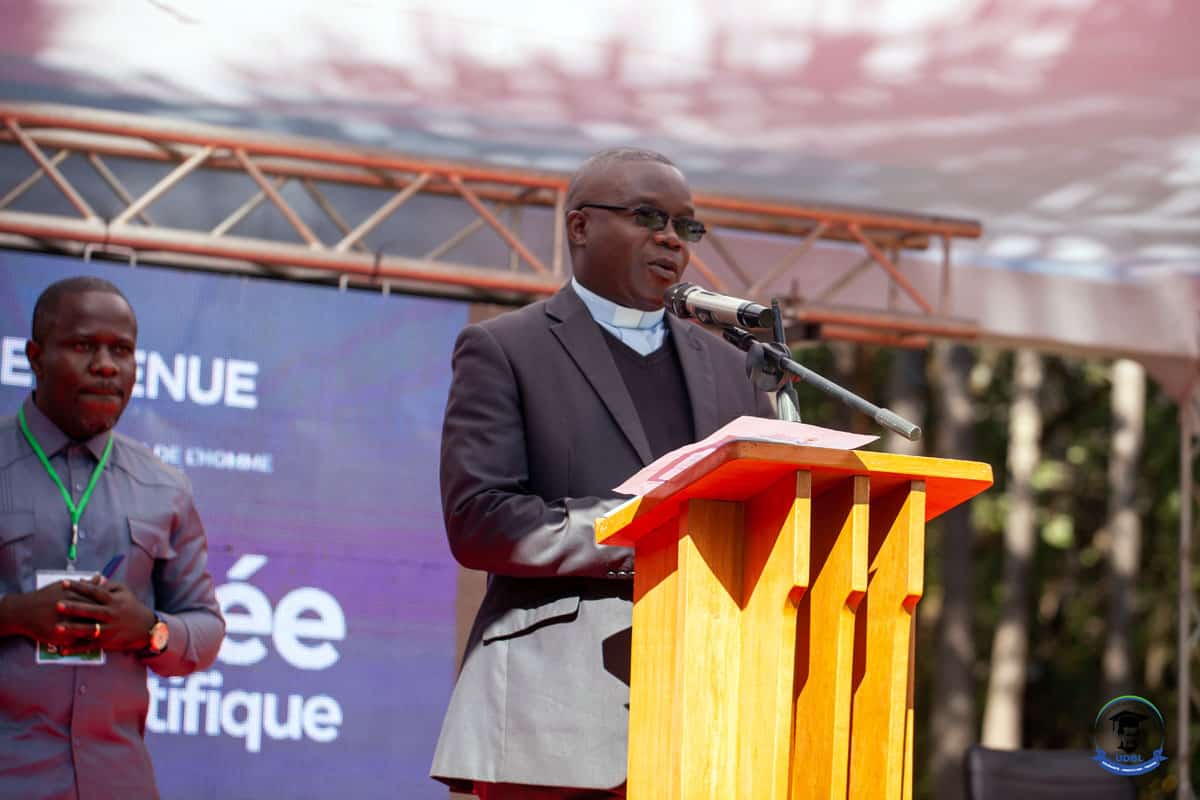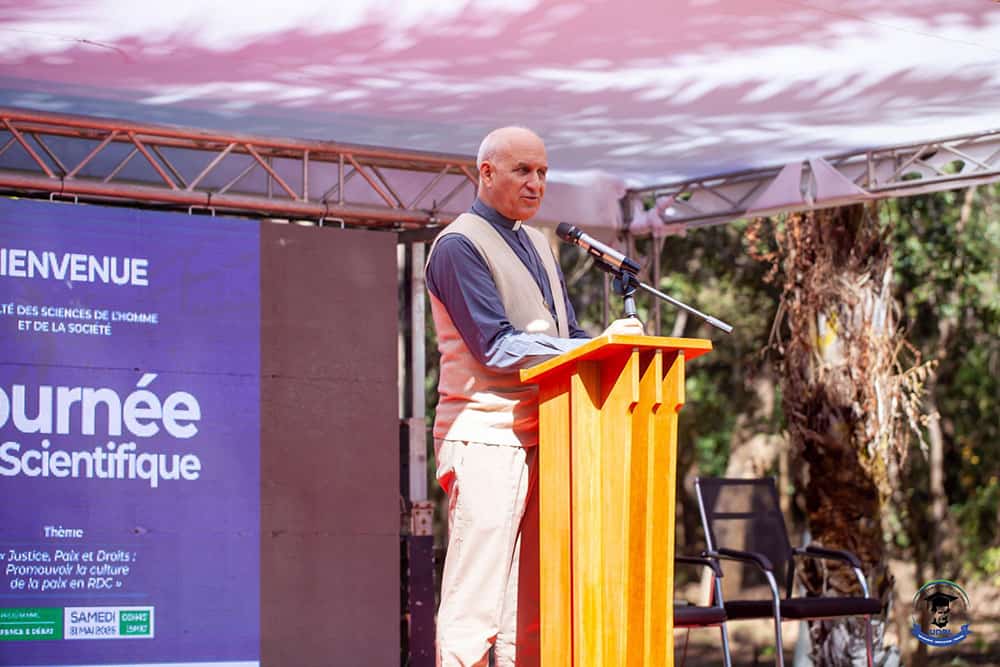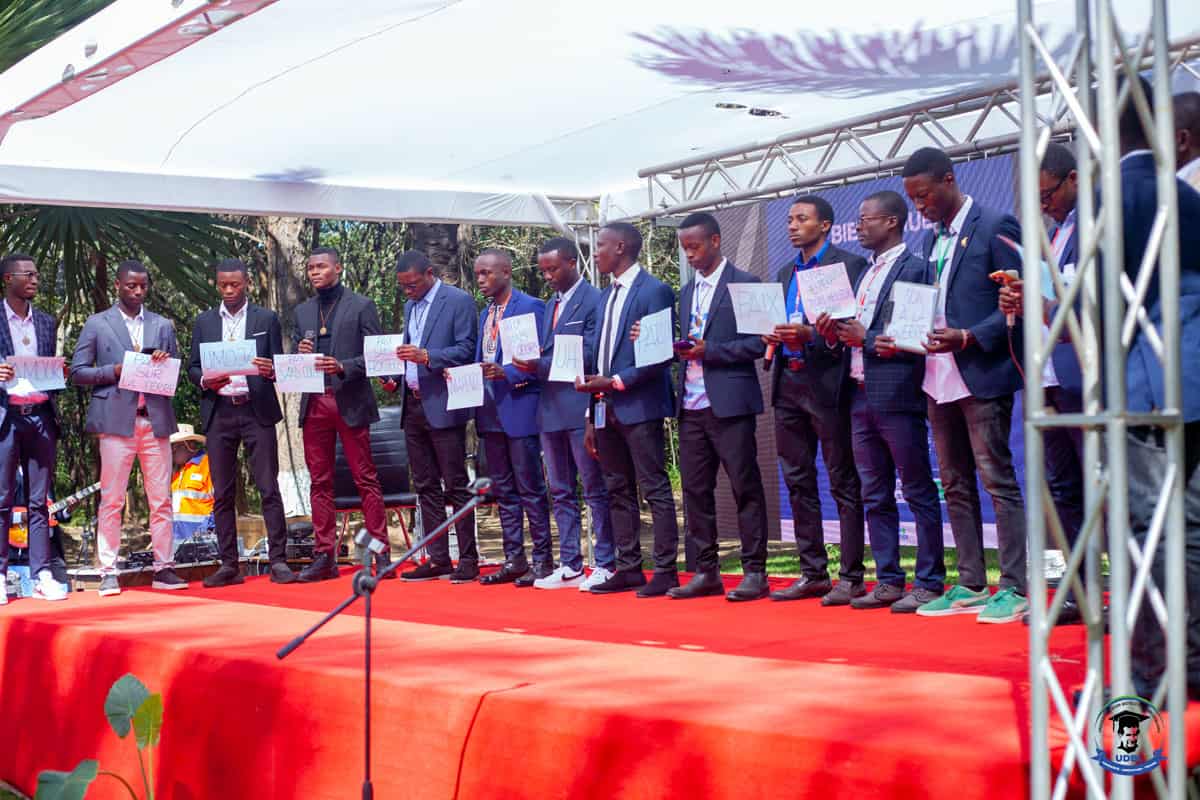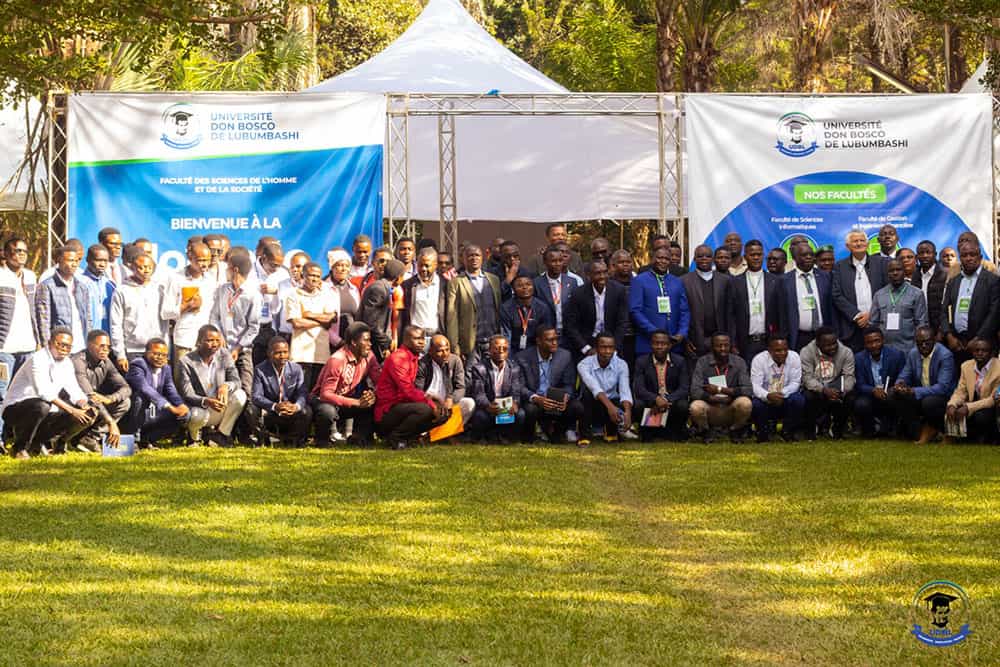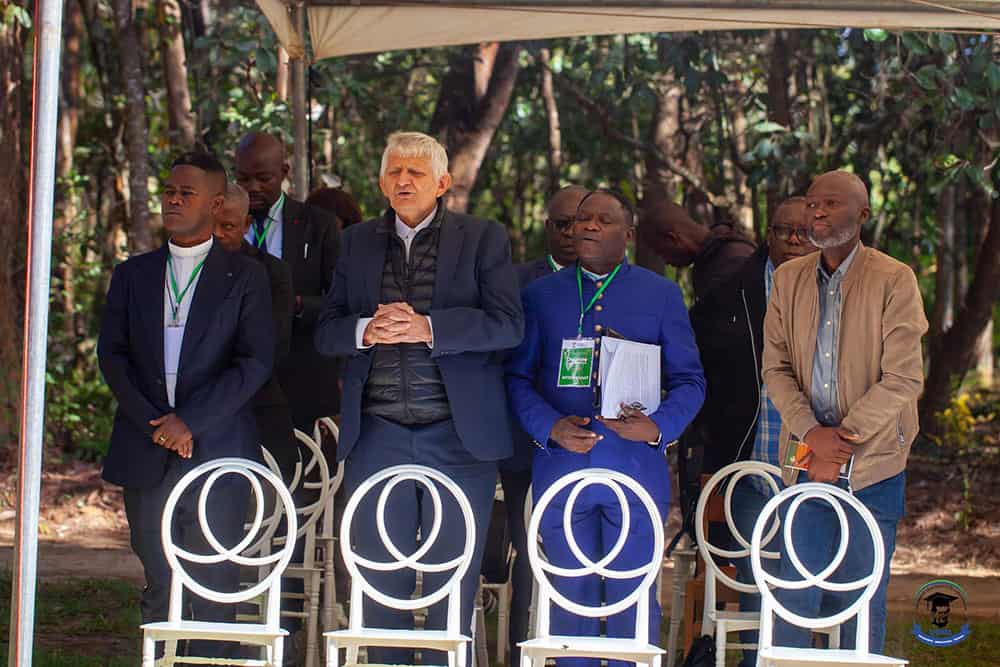(Université Don Bosco, Lubumbashi) – On Saturday 31 May 2025, the Don Bosco University of Lubumbashi (UDBL), through the faculty of Human and Social Sciences, organised a scientific day on the theme of ‘Justice, peace and rights: promoting a culture of peace in the DRC’. The event was held in the Kafubu Valley at the Saint Jean Bosco Postnovitiate in Kansebula, Lubumbashi/DRC. The event was attended by Fr Guillermo Basañes, Provincial of AFC, professors and permanent members of the University, students, social, political and military players and other distinguished participants.
The Democratic Republic of Congo, a country that has been plagued by war for more than three decades, is faced with armed conflicts that have had a serious impact on the social, political and economic stability of the nation. This context of violence has led to massive violations of human rights and has even undermined the foundations of lasting peace. For this reason, promoting a culture of peace, justice and rights is a fundamental challenge in the current socio-political context of the DRC.
In his welcome address, the Dean of the Faculty, Reverend Fr Kalumbu Besa Dieudonné, specified the aim of this academic activity as being to raise awareness among all citizens in this context: professors, students, social, political and military players and others, of the mechanisms that can help to promote a culture of peace in the DRC.
The programme included eight conferences with different interdisciplinary approaches:
• “David MUBENGA, SDB, Doctor of Philosophy at the Gregorian University, who demonstrated that lasting peace is achieved in a society when people feel autonomous in their capacity for freedom of thought, expression and living well with others.
• ‘The link between human rights and justice for lasting peace in the DRC’: by Ms Maria KATAPALA, Master in Economic and Social Law at the University of Lubumbashi, who emphasised that to ensure lasting peace, it is necessary to rebuild a state of rights based on equality and respect for the rights of people and their environment.
• ‘The economy at the service of peace: promoting shared prosperity’: by Professor Félix Kalaba Bin Senkwe, Doctor of Monetary and Financial Economics, whose speech focused on the economy’s contribution to sustainable peace through the equitable distribution of wealth.
• ‘The contribution of integral ecology to sustainable peace’: by Fr Dieudonné BESA, SDB, Doctor of Education at the UPS Rome, who showed that peace is a very essential guarantee that the world and man, man and nature, demand. And to achieve it, man must respect nature in all its complexity.
• ‘The relevance of Salesian pedagogy today for promoting peace: Good Christians and upright citizens’: By Fr Dieudonné MAKOLA, SDB who, in his talk, pointed out that in order to mitigate the issue of war, it is essential to practise Don Bosco’s preventive teaching method, based on reason, religion and kindness, in all educational structures, because it promotes prevention and non-violence.
• ‘Education for peace as a foundation for peaceful coexistence between peoples’: By Fr Pierre MAIBWE, SDB, Doctor of Education from the University of Lubumbashi, who insisted on the need to integrate a programme of education for peace into the Congolese education system, because the role of education is to make people more human.
• ‘The nature of the role of the Church through CENCO (Conférence Episcopale des Evêques du Congo) in building peace in the DRC’: By Fr Bertin MPEMBA priest of the Archdiocese of Lubumbashi and Doctor in Canon and Civil Law who presented the role of mediation played by CENCO between the people of God and the country’s ruling class.
• ‘What kind of internal and external diplomacy for peace in the DRC?’: By Professor Félicien Mulamba of the University of Lubumbashi, Doctor of Intentional Relations, who insisted on the fact that if the DRC wants to have lasting peace, it must be capable of imposing diplomacy.
So the lasting peace that the DRC needs as a matter of priority right now is an imperative to which everyone at his or her level must commit actively, because building a peaceful society depends on collective involvement and the will to transcend our differences. In this way, the DRC can hope to build a flourishing future where peace and justice coexist harmoniously, paving the way for sustainable and inclusive development.


